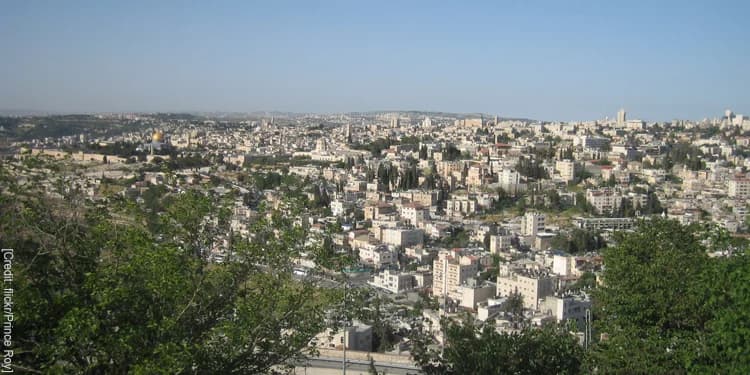Take Off Your Shoes
Rabbi Yechiel Eckstein | January 19, 2017

“Do not come any closer,” God said. “Take off your sandals, for the place where you are standing is holy ground.” — Exodus 3:5
This Torah portion for this week is Shemot, which means “names,” from Exodus 1:1–6:1, and the Haftorah is from Isaiah 27:6–28:13; 29:22–23.
Trivia question: After the directive to stop, what is the first action that God commanded Moses to do the very first time that they spoke?
The answer: “Take off your sandals.”
Some of us may have known that from memory, but if we hadn’t ever read the Bible, that’s not the answer we might have expected. After all, this is the first encounter between God and the great prophet. “Take off your shoes” seems like a rather mundane instruction given the holiness of the moment.
As you may have guessed, there is more to the command than what appears. One explanation has resonated with me deeply.
When you think about it, shoes provide us with protection and a sense of security. Nothing puts a spring in our step like a pair of brand-new shoes! Shoes give us a cushion between the hard ground and our vulnerable feet. They make us invincible to elements like snow, rain, rocks, or thorns. With the right pair of shoes, you can walk just about anywhere without feeling discomfort.
However, on that fateful day, God wanted Moses to be uncomfortable. God wanted Moses to feel every rock, pebble, and grain of sand. Did you know that our feet contain nerve endings from our entire body? Our feet are an extremely sensitive part of our body. And at that moment, God wanted Moses to be sensitive – super-sensitive.
Why? “For the place you are standing on is holy ground.” Moses was about to become the leader of the children of Israel. This was holy work, and indeed, he was standing on “holy ground.” God wanted to teach Moses at the outset that in order to do His holy work, Moses must remain extremely sensitive.
Leaders can easily fall into the trap of being out of touch with the people. Most leaders of nations enjoy luxuries that the general public does not. It’s easy to become insensitive to the needs of the common man or unsympathetic to a poor man’s plight. God, on the other hand, says “Don’t you dare! My people are my precious children.” Moses was commanded to remain as sensitive as he was at that moment until the day that he died.
Insensitivity is a trap we all can fall into. It’s hard to empathize with the hungry if your stomach is always full, or to feel for the homeless when we are enjoying the comfort and warmth of our own homes. But, friends, we who serve the Lord are on “holy ground.” We must remain acutely sensitive to the needs of His children and do our best to meet them, whenever and however we can.


